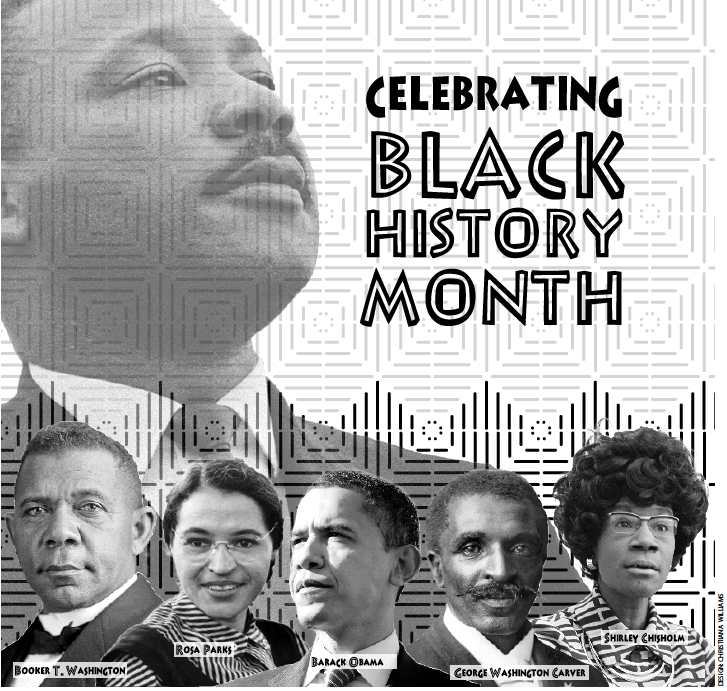“I celebrate by being with my friend,” junior university student Natalie Reed said reaching her hand across the table to Zhadaisa McDuffie, a sophomore African-American student.
“It’s important to celebrate Black History Month because it reminds us of the healing that’s happened and the barriers we have broken down,” Reed continued.
Since Harvard scholar Carter G. Woodson helped found Black History Month, the observance has always sought to move beyond division and harmful prejudices.
“What we need is not a history of selected races or nations, but the history of the world void of national bias, racial hate, and religious prejudice,” Woodson said.
In 1915, Woodson along with other African-American intellectuals set up a showcase of African American progress in Chicago.
Encouraged by positive responses to the exhibit, Woodson founded The Journal of Negro History. He later grouped celebrations of black heritage into a Black History Week in February.
For 50 years following Black History Week, people continued to observe February as devoted to the celebration of African-American achievement. President Gerald Ford officially recognized February as Black History Month in 1976.
“We must seize the opportunity to honor the too-often neglected accomplishments of black Americans,” Ford said in a speech on the Bicentennial of American Independence.
Harry Miller, a senior who plans to earn a graduate degree in African-American studies, said black history is more than a history of struggle. Miller said it is also a story of reconciliation, a story that continues to this day.
“I think [Black History Month] is important to celebrate because black history is intrinsically tied to American history,” Miller said.
“We can’t talk about our history without talking about black history.”
Miller said he celebrates Black History Month by reading about black history and advises others to do the same.
Gomer Joseph, a junior business major whose parents migrated to the United States from Haiti, shared his thoughts on how people can celebrate Black History Month.
“The way everybody can celebrate is to move on from the racial tensions that happened in this country,” Joseph said.
According to Joseph, people should acknowledge the important role African-Americans have played in the history of the United States.
Joseph referenced great African-Americans like Daniel Hale Williams, a pioneer in the field of cardiac surgery, and Garrett Morgan, the inventor of the traffic light, to prove his point.
According to Joseph, the best way he can observe Black History Month is by doing well in school and by writing stories, which he enjoys doing as an author.
Joseph said the most im-portant thing people can get out of Black History Month is that in spite of obstacles, ordinary people can contribute to the country.
For Dan Wolf, a senior Christian ministries major, Black History Month is an opportunity to reflect upon the struggle African-Americans have faced and what they have achieved.
Wolf said it is also a chance to rejoice as Christians in the diversity God has created.
According to Wolf, it is important for majority people groups to really listen to the different perspective minority people groups have to offer instead of trying to fix everything.
Wolf also shared his experience of celebrating Black History Month. He attended a mostly African-American and Latino high school and said learning about different cultures and backgrounds has impacted him positively.
“[Black History Month] wasn’t a party, but a series of events and opportunities to learn and grow,” Wolf said.
For Wolf, Black History Month is important because he said people need to recognize what African-Americans have done for the Gospel.
Wolf said Christians, especially in fundamentalist circles, often overlook the spiritual and evangelistic impact African-Americans have had in the United States and across the world throughout history.
According to Wolf, people need to learn how to recognize racial differences and rejoice in the uniqueness of God’s creation.
He said he would like to see BJU offer more opportunities, like seminars and speakers, to recognize and celebrate African-Americans and their history.





















































